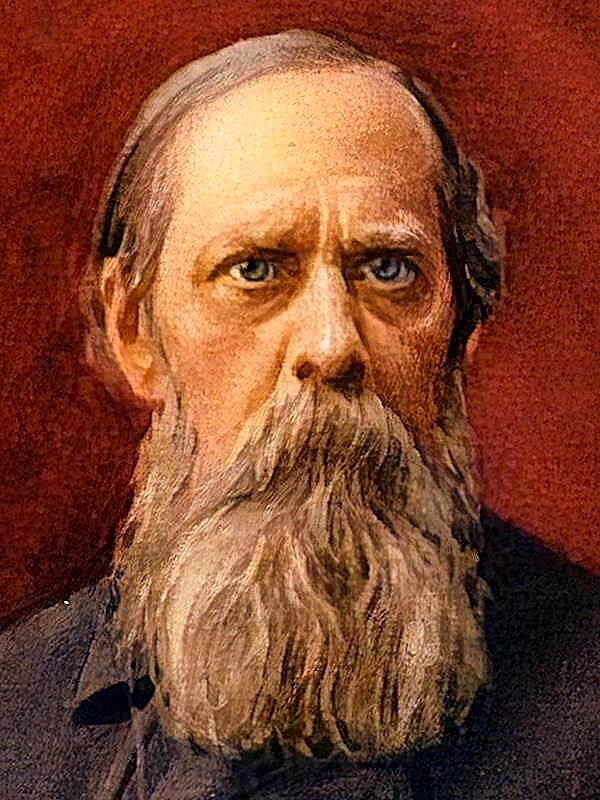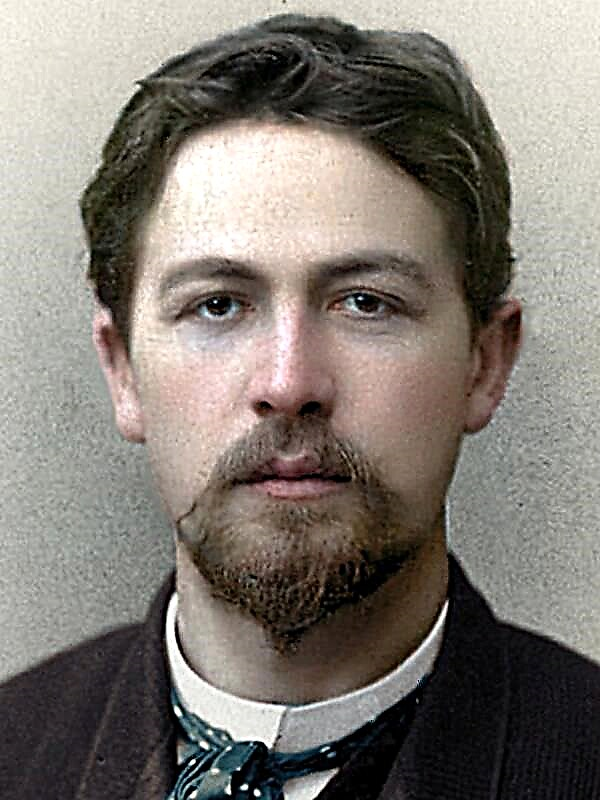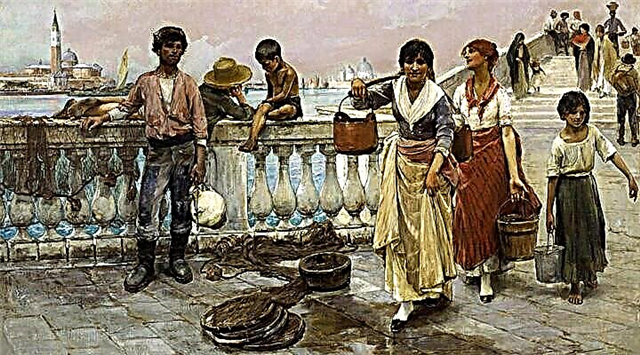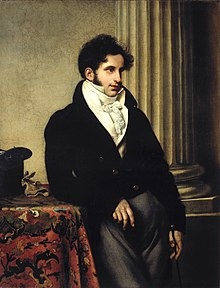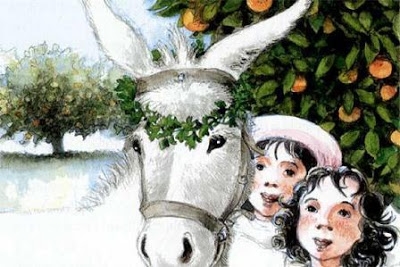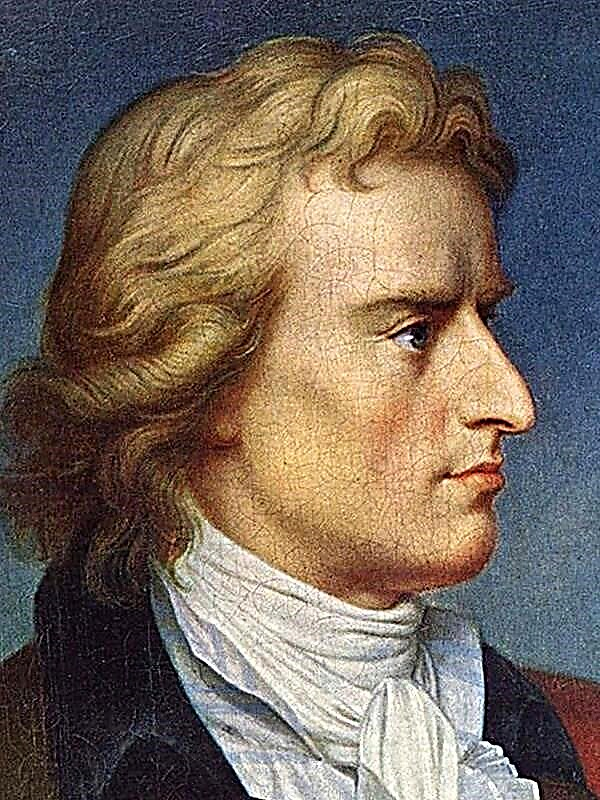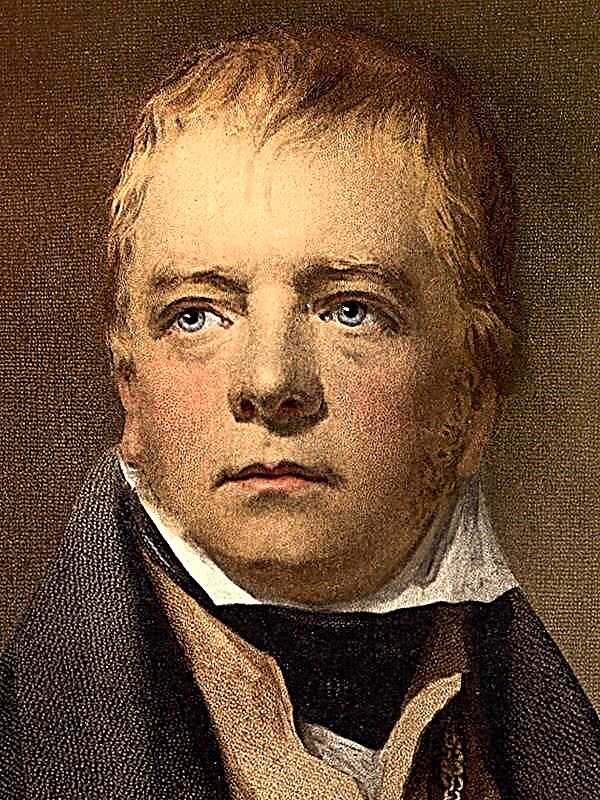Children get acquainted with Pushkin’s work even before the school curriculum, and while sitting at a desk, they truly appreciate his contribution to Russian culture. After more than one century, we read out “Onegin”, “The Bronze Horseman”, “The Captain's Daughter”, as well as teach the poems of the great poet. The work "The Prophet" is one of the clearest evidence that Pushkin really deserves his praise and remains an example for many of us.
History of creation
The poem "The Prophet" was composed by Pushkin in 1826. Then the poet was in the village of Mikhailovskoye, where he was hard-pressed for the failure of the Decembrist uprising, with whom he maintained good relations. Upon learning of the loss of friends, the troubled author became interested in God's Law. On the eve of his brother sent him a Bible.
The content of the poem “The Prophet” was one of the biblical tales in which the Messenger of God appeared to the prophet Isaiah. According to the plot of the Bible, a person impressed by this meeting became a preacher, but did not find understanding among the people. Penetrated by the biblical legend, the classic rethought history, creating his poem. In the work of Pushkin, the poet becomes a prophet, to whom the seraph is also.
Genre, size and direction
The poem is full of pathos and solemnity, and the goal of the lyrical hero is equated with God's mission. Given this, it is safe to say that the "Prophet" of Pushkin is not just a lyrical poem. Genre nature works are much deeper, therefore, this creation of Pushkin can safely be called an ode.
In the case of the "Prophet", one might get the impression that Pushkin was aimed at the predominance of content over form. Unlike some of his poems, the "Prophet" is not divided into stanzas, as well as the poet used more than one type of rhyme. The plot of the poem, of course, deserves separate lines, but how the work is written is also important. The size of the poem - four-legged iambic. Not every poet is given to write about the destiny in the way that Pushkin does, so the growing rhythm of the poem is a definite plus of an exalted work.
Before proceeding directly to the content of the “Prophet,” it remains to sort out the direction in which the poem was written. Pushkin proved himself in more than one direction, creating both romantic and realistic characters. As for the poem under consideration, the features of the “Prophet” suggest us to determine the direction: the arrangement of the biblical plot, philosophical themes, the solemn style of the lines. All this is close to such a direction as classicism.
Composition
The composition of the “Prophet" consists of three parts.
- The lyrical hero "dragged himself into the gloomy desert", but the author emphasizes that he is "a spiritual thirst for torment." In other words, the poet learns the torment of creativity. Such a strong image fascinates at the very beginning of the poem, and the reader already foresees the unthinkable development of events. And indeed, “at the crossroads” is the six-winged seraph.
- The envoy begins to endow the hero with gifts: his “prophetic apple trees” have been opened and his ears “filled with noise and ringing,” that is, the touching seraph gives the poet vision, like an eagles, and a sensitive hearing. But this is not enough for a true prophet, so further metamorphoses occur: the "crafty tongue" is replaced by the "sting of the wise serpent." And instead of a “quivering heart," he receives "coal burning with fire," as a symbol of a worthy bearer of the light of truth.
Now, when the poet vigilantly sees, sensitively hears, wisely speaks, and passionately worries, the poem compositionally ends with the cry of God, calling on the prophet "to burn the hearts of people with the verb." From now on, we are faced with a hero after the moment of rebirth, ready to fulfill God's will.
The main characters and their characteristics
- At the beginning of the poem lyrical hero - a simple person, and in the end he is reborn for an important mission into a gifted Creator from above. That is, a poet languishing in the desert becomes a prophet who is assigned a significant role. The image of the Prophet is directly intertwined with the gospel character, but Pushkin poses a different task for his lyrical hero-poet. The prophet, he is a poet, is in love with his work, and his task is to open to people poetry in all its glory. After a complete rebirth, he is ready to fulfill his appointment.
- The author understands that an ordinary poet is not able, like Isaiah, to open people's eyes to the truth, therefore another, no less important hero in the poem is God's messenger. Seraphim is the closest angel to God, and it is no coincidence that Pushkin uses this image in the work. The author trusts the messenger to configure the poet to fulfill his mission, turning him into a worthy Prophet. The six-winged angel helps the hero painfully reborn, but thereby puts him on the true path. Even in cinematic techniques, an angel sitting on a person’s shoulder tells him the right decision and directs him to a good goal. So it is in Pushkin's “Prophet”: the seraph does everything to help the poet fulfill his duty to society.
- Of course, pay attention to Of Godappearing in the final lines. As in many stories, the “voice of God” is a kind of mentor that defines the purpose of human existence.
Topics
- Theme of the meaning of life. The poem sets the reader to readiness to find his destiny, because every person really must leave a mark on the Earth.
- Pushkin touches on the current theme of poet and poetry in the "Prophet". If the author in his work declares that the creator is reborn with the help of the divine messenger, then, of course, the result is always interesting. And in the case of the author himself, no doubt, I want to believe that the seraph visited him himself. The purpose of poetry is put in the first place in the poem. As, for example, a doctor is obliged to ensure and maintain the health of patients, so a poet should “burn the hearts of people with a verb”.
- The fate of the Prophet. However, this topic is closely related to the previous one. The prophet in the poem is a poet who has a duty to society - to use his talent with benefit, to give people beautiful works of art. As in the case of the fate of the biblical prophet, he is obliged to carry the flock of truth.
- The main theme of the “Prophet” is the willingness to fulfill one’s own worthiness divine destinythat each of us should have.
Problems
We figured out the themes rising in Pushkin’s ode, but nothing, not even the help of the seraphim, comes so easily. The desire to write poetry is present among many, not so many people creatively embody themselves, but there are poets in the world who are truly worthy of a mission like the Prophet. What is the problem of the work? In what way the chosen one should go, in his sacrifice.
Let us pay attention to the relationship of the prophet and the world around him. The prophet aims to help society, he fulfills his mission and acts only for the good. But remember the beginning of the poem - a lone hero wanders in the desert. The reader can guess that the poet is simply rejected from others. However, acquiring a divine purpose, he finds much more for himself - the talent and the task of opening people's eyes. Although the hero rejected by society becomes a real prophet, ready to present the beautiful to the world around him.
Idea
The main idea inherent in the poem is conveyed to the reader by the “voice of God”: the mission of the Prophet Pushkin (poet) is to reveal to people their talent, to let them feel the power of poetry. The idea of the work is that everyone is free to find their destiny, and if you give your whole soul to your beloved business, perhaps your task is to demonstrate your capabilities to the world.
It is not at all a fact that the six-winged seraph will appear to you and will instruct you in similar ways, but sometimes one desire or talent is enough to realize yourself and benefit others. This will be a kind of hint, a sign from above. In Pushkin’s poem, this can be literal, but the main thing is to use your strength and talents to benefit the world. This is the meaning of the "Prophet."
Output
The poem “The Prophet” by the great poet Alexander Pushkin contains a deep philosophical meaning: the one born by the poet should not only be able to rhyme strings, but also benefit the people. If a person’s talent can serve society, then this is probably a destination from above.
As the messenger of God appeared to the protagonist-poet to convey this to him, so any person is able to influence others on his own. But in the poem we are analyzing specifically, the attention of readers is focused on the divine destiny of the creator.
Means of artistic expression
When creating a poem, Pushkin devotes much attention to vocabulary. The author is a true professional in his field, and as evidence we can pay attention to such words as “desert” or “prophet” himself. These are words that contain more than one semantic connotation, because under the desert, first of all, we understand the place of alienation, which, incidentally, is also embodied in the work. But at the same time, in the desert, the hero seeks spiritual solitude and acquires a divine essence. As for the prophet, this word means both the prophet himself and the poet. Therefore, the uniqueness of the words chosen by Pushkin is an indisputable proof that he, like his lyrical hero, seemed to be elected from above to demonstrate poetry to others.
Another feature of the "Prophet" is a large number of hissing sounds. However, with regard to visual aids, here the author again proved himself worthy enough. The poem is saturated with metaphors, for example, “the verb burn the heart” or “sky tremble”. Numerous epithets, such as the “gloomy desert”, “the sting of the wise serpent”, give elevation to the work. Pushkin enriched the Prophet with various paths, and he also resorted to comparisons in order to more clearly express the idea of the poem (“like a frightened eagle,” “like a corpse”).
And, of course, it is worth paying attention to the Old Church Slavs used by the author (“mouth”, “prophetic”). If we take into account that Pushkin created a poem according to the idea of a biblical legend, then the whole picture is made up of the smallest and well-thought-out lexical parts.
Criticism
The poem is written in the first person, the protagonist is a poet, all opaque hints that, speaking about the purpose of the writer and the relevance of poetry, Pushkin implies himself. Many contemporaries of the author decided that he was proud, mentioning God's chosenness. However, the author did not aim to praise himself in his work, but only wanted to draw the attention of poets to the responsibility that lies with them. And, as Pushkin’s biography and work shows, he does not overestimate the seriousness of poetry, but merely treats it with due respect and reverence.
Despite some disapproval from contemporaries who consider the classic arrogant, Pushkin only proves a serious approach to the work of his whole life, which, unfortunately, not every poet can do.

